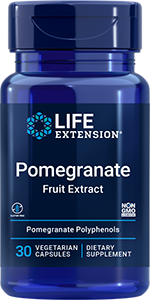- Science & Research
- Science News
- Newsletter
- 2012
- September 28

Newsletter
Newsletter
Resveratrol Increases Lifespan In Bees
Resveratrol increases lifespan in bees
Friday, September 28, 2012. The July, 2012 issue of the journal Aging reported the results of research involving honey bees which revealed an ability for resveratrol to reduce food intake and extend life. Resveratrol is a compound found in red grapes and wine that has been found to provide some of the benefits of calorie restriction. Although resveratrol has been shown to lengthen the lives of yeast, worms, fruit flies and mice, the study is the first to evaluate the effect of the compound in honey bees. In the current study, a team that included David A. Sinclair at Harvard Medical School, as well as scientists at Arizona State University and the Norwegian University of Life Sciences compared the effects of an unenhanced honey bee diet to diets containing two different concentrations of resveratrol. The lower concentration of resveratrol was associated with a 38 percent increase in average lifespan and the higher concentration with a 33 percent increase under normal oxygen conditions. Maximum lifespan, which defines the longest lived members of a species (in contrast with average life expectancy) also increased in resveratrol-fed bees. Exposure of the bees to a high oxygen environment designed to generate oxidative stress eliminated these effects. "For the first time, we conducted several tests on the effects of resveratrol by using the honey bee as a model," announced lead author Brenda Rascón, who is an associate professor at Arizona State University's School of Life Sciences and the Norwegian University of Life Sciences. "We were able to confirm that under normal living conditions, resveratrol lengthened lifespan in honey bees." In an effort to uncover the mechanisms involved in resveratrol's benefits, the researchers examined the compound's effect on appetite. In comparison with bees that did not receive resveratrol, those given the compound had less interest in consuming sugar solutions unless the sugar was highly concentrated. "Because what we eat is such an important contributor to our physical health, we looked at the bees' sensitivity to sugar and their willingness to consume it," Dr Rascón explained. "Bees typically gorge on sugar and while it's the best thing for them, we know that eating too much is not necessarily a good thing." Further experimentation revealed that resveratrol reduced food consumption in bees allowed to eat as much as they liked of diets containing carbohydrate and protein. "Surprisingly, the bees that received the drug decreased their food intake," Dr Rascón reported. "The bees were allowed to eat as much as they pleased and were certainly not starving--they simply would not gorge on the food that we know they like. It's possible resveratrol may be working by some mechanism that is related to caloric restriction – a dietary regimen long known to extend lifespan in diverse organisms." "In summary, we demonstrated that resveratrol significantly affected gustatory responsiveness and prolonged lifespan in wild-type honey bees under normal oxygen conditions," the authors concluded. "Our subsequent projects in honey bees will focus on using pharmacological agents to explore whether there is a SIRT1-dependence for the lifespan and neurophysiological effects noted here." | ||||||||||||||||||||||||||||||||||||||||
 | ||||||||||||||||||||||||||||||||||||||||
| ||||||||||||||||||||||||||||||||||||||||
 | ||||||||||||||||||||||||||||||||||||||||
| ||||||||||||||||||||||||||||||||||||||||
| ||||||||||||||||||||||||||||||||||||||||
The latest news on aging, nutrition, and vitamins
Lab
Testing
How Life Extension lab testing works









